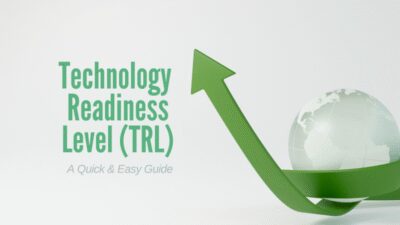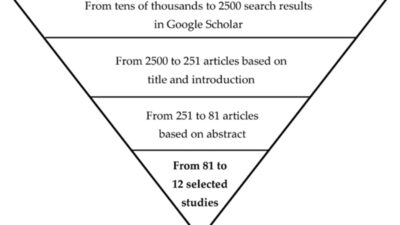Technology Adoption In Developing Countries – By clicking, keep joining or logging in, you agree to the user compliance, privacy policy and cookie policy.
Access to reliable and affordable electricity is a critical driver for economic development, as well as social well-being and eradication of poverty. Nevertheless, a significant part of the population in many developing countries, including Zambia, did not have access to a stable supply of electricity. According to the World Bank, only 27% of Zambia has access to a type of electric power in 2019. The low part of the penetration of power greed is due to a lack of infrastructure in the field. The situation is exacerbated in rural areas, where the number of people with access to power can be as low as 4%. As it is estimated that 60% of the zambian population that is near in rural areas, a significant part of the robberry population did not have access to electricity.
Technology Adoption In Developing Countries
A lack of access to electricity has a significant impact on rural communities, limiting citizens’ access to critical services such as healthware, education and moistrications as well as economic progress. On the other hand, solar powered senses as a feasible solution to the problem because it provides clean and affordable energy and can be connected in areas that are not connected to the grid. In the last years, the Zambiaian government has worked to address the country’s energy shortage by encouraging the use of renewable energy sources such as solar energy.
Cloud Adoption In Heis: A Multi-theoretical Framework Integrating Toe, Tra, And Fvt
However, due to various barriers, the use of solar products in rural areas was slow. One of the most important problems is affordability, as rural people may have limited income and may not be able to pay the previous costs for the purchase of solar products. This is one of the most important challenges. In addition, rural noodles can have limited access to distribution channels, making it more difficult for solar items to reach the people who need it. In addition, a lack of knowledge and understanding of the benefits of solar supports can be an important drawback to children.
Marketing is critical to overcoming the obstacles and promoting the acceptance of solar products in geographical areas that have historically are ignored by the industry. An effective marketing strategy can help raise awareness of solar products, making it more accessible and cheaper and guarantee that they meet the specific needs, preferences and limitations and limitations, preferences and limitations.
Zambia has made remarkable progress in the last few years to increase access to electricity, with a large emphasis on the use of renewable energy sources such as solar energy. This is an excellent place for the generation of solar electricity due to the country’s main solar surar sources and the fact that it receives an average of 300 days of sunlight every year. The access of people’s access to energy, especially in rural areas, the Zambiaian government has accepted various laws and launched several programs to stimulate the installation of solar systems (SHS) and mini-roster.
Despite the efforts, rural areas’ acceptance of solar seems are delayed due to the multiple challenges that exist here. One of the most important problems is affordability, as rural people may have limited income and may not be able to pay the previous costs for the purchase of solar products. This is one of the most important challenges. In addition, rural noodles can have limited access to distribution channels, making it more difficult for solar items to reach the people who need it. In addition, a lack of knowledge and understanding of the benefits of solar supports can be an important drawback to children.
Pdf) Navigating Digital Transformation And Technology Adoption: A Literature Review From Small And Medium-sized Enterprises In Developing Countries
Politics and regulatory barriers play an important role in obstructing the acceptance of solar based technology in developing countries. The obstacles still existing uncertainty, increase costs and discourage investment in the solar sector. It is therefore important that governments decide clear and consistent regulations that set up the rules and procedures for the adoption of solar technology. This includes imagery processes, safety standards and interconknication needs. Governments can work with financial institutions to create favorable financing options, including low interest and credit facilities loans to make solar technology more accessible. Addressing the policies and regulatory barriers is essential to accelerate the acceptance of solar based technology in developing countries. This requires proactive cooperation between governments, regulatory authorities and industrial stakeholders to create a supportive environment that encourages investment and innovation in the solar sector.
The low adoption rates of solar based technology in developing countries are an important challenge. אָבער, דורך אַדרעסינג די ישוז פון הויך ערשט ישוניק קאָס, ינפראַסטראַקטשער, וויסיקייַט, ינטעראַפּטיד מאַכט צושטעלן, פּאַלאַסיז און רעגיאַלאַטאָרי טשאַלאַנדזשיז, און קולטור טשאַלערז, מיר קענען מאַכן באַטייַטיק פּראָגרעס, מיר קענען מאַכן באַטייַטיק פּראָגרעס, מיר קענען מאַכן באַטייַטיק פּראָגרעס, מיר קענען מאַכן באַטייַטיק פּראָגרעס, מיר קענען מאַכן באַטייַטיק פּראָגרעס, מיר קענען מאַכן באַטייַטיק פּראָגרעס, מיר קענען מאַכן באַטייַטיק פּראָגרעס, מיר קענען מאַכן באַטייַטיק פּראָגרעס, מיר קענען מאַכן באַטייַטיק פּראָגרעס, מיר קענען מאַכן באַטייַטיק פּראָגרעס, מיר קענען מאַכן באַטייַטיק פּראָגרעס, מיר קענען מאַכן באַטייַטיק פּראָגרעס, מיר קענען מאַכן באַטייַטיק פּראָגרעס, מיר קענען מאַכן באַטייַטיק פּראָגרעס, מיר קענען מאַכן באַטייַטיק פּראָגרעס, מיר קענען מאַכן באַטייַטיק פּראָגרעס, מיר קענען מאַכן באַטייַטיק פּראָגרעס, מיר קענען מאַכן באַטייַטיק פּראָגרעס, מיר קענען מאַכן באַטייַטיק פּראָגרעס, מיר קענען מאַכן באַטייַטיק פּראָגרעס, מיר קענען מאַכן באַטייַטיק פּראָגרעס, מיר קענען מאַכן באַטייַטיק פּראָגרעס, מיר קענען מאַכן באַטייַטיק פּראָגרעס, מיר קענען מאַכן באַטייַטיק פּראָגרעס, מיר קענען מאַכן באַטייַטיק פּראָגרעס, מיר קענען מאַכן באַטייַטיק פּראָגרעס, מיר קענען מאַכן באַטייַטיק פּראָגרעס, מיר קענען מאַכן באַטייַטיק פּראָגרעס, מיר קענען מאַכן באַטייַטיק פּראָגרעס, מיר קענען מאַכן באַטייַטיק פּראָגרעס.
Collaboration between governments, international organizations, the private sector and local communities is essential for the development of effectively, sustainable and culturally sensitive solutions. In doing so, we can use the potential of solar technology to improve energy access, promote environmental sustainability sustainability sustainable and promote economic development in developing countries. Key barriers to adapting technology in deserted management in developing countries are economic boundaries, poor infrastructure, skills gaps, poor policies and social reasons.

Technology Adoption in deserted management in developing countries is facing main obstacles. This includes a lack of money for expensive technology, poor infrastructure such as reliable electricity and internet, limited technical skills to keep new waste management. The interconnected issues make an important challenge to improve size systems with technology.
Appropriate Technology And Barriers To Technology Adoption:
For developing countries, the pursuit of advanced waste management technologies offers advanced recycling, ethical dilemmas, ethanal hands, access fair consideration through technological promise. → ranging from sophisticated sorting systems to waste-to-energy plants → is often significantly injuries by a complex web of mutual barriers. The obstacles are not only technical; They are deeply rooted in socio-economic realities, infrastructure deficits and management challenges. Understanding the fundamental obstacles is the first step to formulating effective strategies for sustainable waste management.
Financial resources represents a primary obstacle. Developing countries always work between close fiscal restrictions, with budgets assigned mainly to immediate necessity of education and essential infrastructure. Desolate management, often considered a secondary concern, receives limited financial attention.
The high pre-handed associated with the acquisition and implementation of modern waste management technologies term → technologies that use science to reduce the implementation of the waste of the waste for sustainability and media efficiency. → including machinery, software and specialized facilities → can be expensive. The long-term operational costs that surround maintenance, energy consumption and competent work, lead the financial load.
This economic fact is exacerbated by limited access to capital and investment. Developing countries meaning → countries that strive for economic progress often relevant sustainability challenges. Often struggling to attract investment in the private sector in waste management due to recognized risks, unsafe returns and a lack of regulatory frogs. International financing and development assistance, although possible, is often earmarked for specific projects or sectors, and it cannot be in line with the immediate techemological needs of waste management systems. The absence of sound financial mechanisms, such as public-private partnerships provided to the local context, further limits the financial viability of technology children.
How Does Small Medium Enterprise In Developing Countries Overcome Information And Communication Technology Adoption Problems?
How could restrict access to capital adapting waste management technology affects? Limited access to capital reasonable limits The investment in advanced waste management technologies, which impede randomity.
Apart from financial restrictions, infrastructure deficits have significant barriers. Many developing countries do not have the fundamental infrastructure need to support advanced waste management yes, technological challenges in the e-waste and other waste sectors are largely the same: data, the infrastructure and environment and environment and environment and environment and environment and environment and environment and environment and environment and environment and environment and environment and environment and environment and environment and environment and environment and environment and environment and environment. Technologies. Reliable and consistent electricity supply is of utmost importance to managing the most modern waste processing and treatment facilities. However, power failures and unstable grids are common in many regions, which produce sophisticated technologies that are not workable or ineffective.
Similarly, insufficient transfer networks → roads and logistics systems → the effective collection and transfer of waste to centralized processing plants. The absence of well-maintained infrastructure increases operating costs which means → operating costs in the contetions during the regular functioning during the regular functioning during the regular functioning during the regular functioning during the regular functioning during the regular function, process or system, specifically if related to environmental and social consecivences. And reduce the overall effectiveness of technology-based waste management solutions.

In addition, technological infrastructure itself is often missing. Limited Internet penetration and digital connectivity in certain areas limit the implementation of data-driven waste management systems. “It relying on the Real-Time Monitoring, optimization and communications. The digital gorwan understanding inequiled solutions. Esassess infrastructure needs, such as properly designed landfills and collection systems, often remain unableed a high-end technological or impractical.
Emerging, Developing Countries Gain Ground In The Tech Revolution
Effective adaptation of waste management technology is not just about getting sophisticated machinery; It is fundamental about building a supporting ecosystem.
The successful implementation and operation of junk management meaning → waste management, within a susticatus context, indicates the systematic handgread garbage of onset at the last disposal, aiming
Pollution in developing countries, information technology developing countries, fdi in developing countries, technology developing countries, in developing countries, inequality in developing countries, appropriate technology for developing countries, appropriate technology in developing countries, development in developing countries, undernutrition in developing countries, corruption in developing countries, poverty in developing countries












